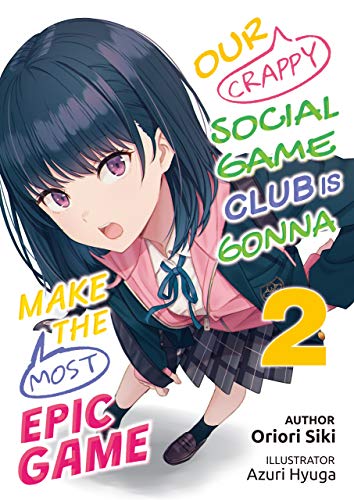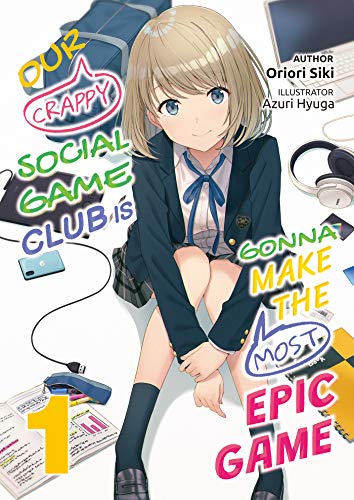By Oriori Siki and Azuri Hyuga. Released in Japan as “Jakushou Soshage-bu no Bokura ga Kamige wo Tsukuru Made” by Overlap Bunko. Released in North America by J-Novel Club. Translated by Mikey N.
I enjoyed the first volume of this series a lot more than I expected, and I’m pleased to see that the second volume rewards my expectations by being just as good. Once again, there is technically a bit of harem comedy here, but not much – the main guy and girl like each other but are too shy, and the new girl introduced here might like the guy too, but clearly sees which way the wind is blowing. Other than that, this book once again looks at how failures from the past can cause an inability to move forward, be it in regards to a person’s passion and confidence, or in their own emotional turmoil and rage. Last time I was impressed with just how perpetually angry Eru is, and that gets even worse here, as I’m amazed that she didn’t end the book by simply killing the cast. The reason her anger soars even higher is one of the catalysts of it: new girl Aina.
The club has been invited to a competition in Tokyo. A number of schools are there, and they’re paired in groups of two to compete with each other to see who can build the best game around a theme. Unfortunately, just as they need to buckle down, various disasters pile up, chief among them being the aforementioned Aina (who also gets the cover art), a former actress now trying to be a voice actress and someone who has a nasty past history with Eru, to the point where Eru is physically violent the first time she sees her. Fortunately, the group keeps working together, but no one can get to the heart of what the issues between them are, and neither one are talking. More to the point, Aina has a cheery, somewhat ditzy personality that proves to be a mask she takes on and off… as Kai finds out when she starts trying to manipulate him.
I will admit, I did think a lot of Ami from Toradora! as I was reading about Aina, but they don’t really go in quite the same direction. The book, for the most part, emphasizes the difficulties in getting a group like this to communicate properly – a group of artists and gamers, most of whom are introverts in some way, and with resentment and jealousy seething around. This is even true of Kai, who finds himself not only falling for the bouncy Nanaka, but also seeing her own potential, which he feels will far outstrip his own. (Kai has to be told to stop denigrating himself at least five times in this book.) Eru and Aina’s past is filled with the sort of horrible shit that teenagers do to each other, and (like a lot of those sorts of things) is resolved a little more easily than everyone expected. And there are a lot of good conversations here between Kai and the main girls, very few of which involve romance at all. Oh yes, word of warning: we not only get a tiny, drill-haired arrogant princess girl as their opponent, but there’s ALSO a minion she has to LITERALLY stand on and make herself taller. It was about eight anime cliches in the space of three pages.
Basically, if you don’t mind all the gaming talk, which can get a bit inside baseball, this is simply a fun group to read about. Even Kai’s older sister, who is written to be “the annoying one”, is not TOO annoying. Fans of series that try to examine why teenagers are the way they are should give this a try.

